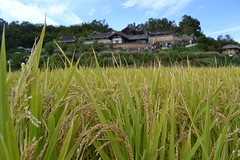According to the International Grains Council, the amount of grains used to make industrial products, mainly ethanol
and starch, will register the largest annual increase in four years
during 2013-14.
This expected rise is a result of record
global maize production and a decline in grain prices The IGC forecasts world industrial use of grains in 2013-14 at
320.2 million tonnes, up 6 percent or 17.2 million tonnes from last year's estimated 303 million tonnes.
A livestock association in Oyo State, Nigeria
has called for the review of animal farm, hatchery and feed mill
registration laws to protect the livestock sub-sector of agriculture.
The association, which comprises of the Poultry Association of Nigeria,
Catfish Farmers Association of Nigeria, Pig Farmers Association of
Nigeria and Animal Scientists Association of Nigeria made the call for the review.
A statement jointly signed by the above associations and many others, expressed concerns that current
registration laws did not take the plight of farmers into consideration.
As part of ongoing efforts to monitor food safety,
the U.S. Food and Drug Administration (FDA) has posted the results of its arsenic
tests in approximately 1,300 samples of
rice and rice products.
While levels varied significantly depending on the product tested, scientists determined that the amount of detectable arsenic was too low in the rice and rice product samples to cause any immediate or short-term adverse health effects.
While levels varied significantly depending on the product tested, scientists determined that the amount of detectable arsenic was too low in the rice and rice product samples to cause any immediate or short-term adverse health effects.
These results are part of the FDA's ongoing efforts to manage the possible arsenic-related risks associated with rice products in the US marketplace.
 |
| Rice up close (Photo credit: Rowan Peter) |



No comments:
Post a Comment